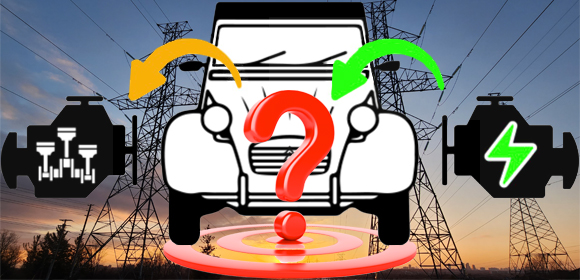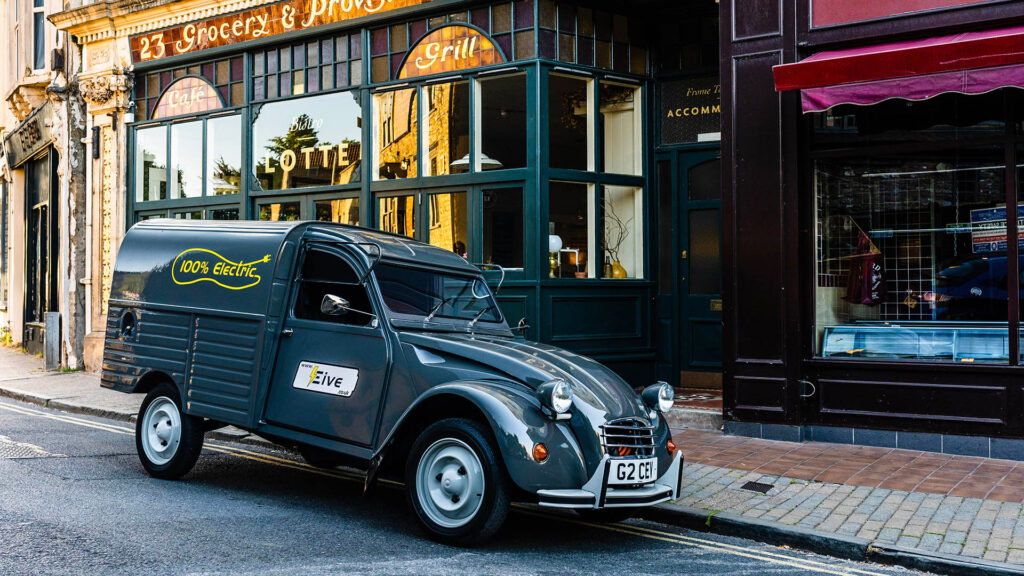As all the major automobile manufactures clamour to switch all their new models to electric power, some companies in the classic car market have seized on the opportunity to offer electric conversions. Insofar as classic Citroëns are concerned, the 2CV has been the first model to be electrified on a more than one-off basis.
Back in June 2021 we reported that Méhari Club Cassis were offering the R-FIT kit, an electric conversion kit for 2CVs that have 602 cc engines. At the time sales were restricted to France. Now they are available for export and so if you want to retrofit your 2CV to be electric, you can shell out 8.900€ (plus shipping)* and order here: https://rfitvintage.com/kit-2cv-berline/. Méhari Club Cassis also offer complete electrified 2CVs for 35,000€.
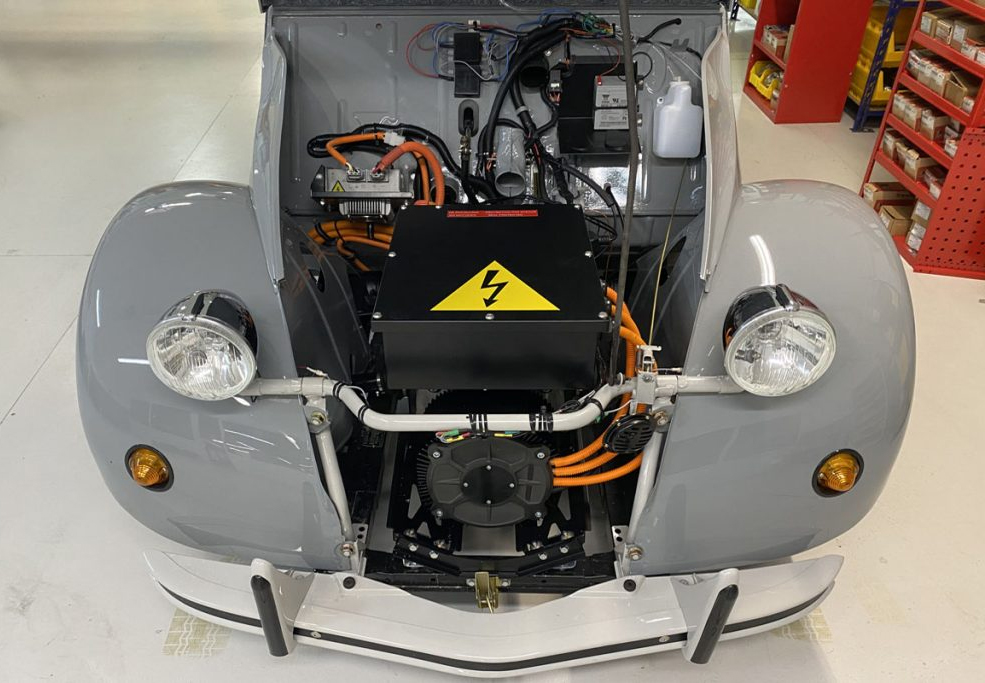
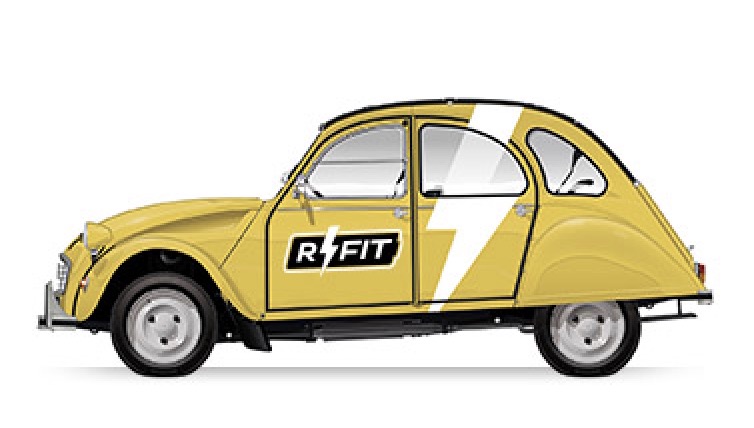
The 2CV Shop in the UK is also offering an electric 2CV they call the 2cEv, that aside from a limited range (105 kms on a full charge — similar to the R-FIT), is only 30 kg heavier than an original 602 cc engine 2CV.
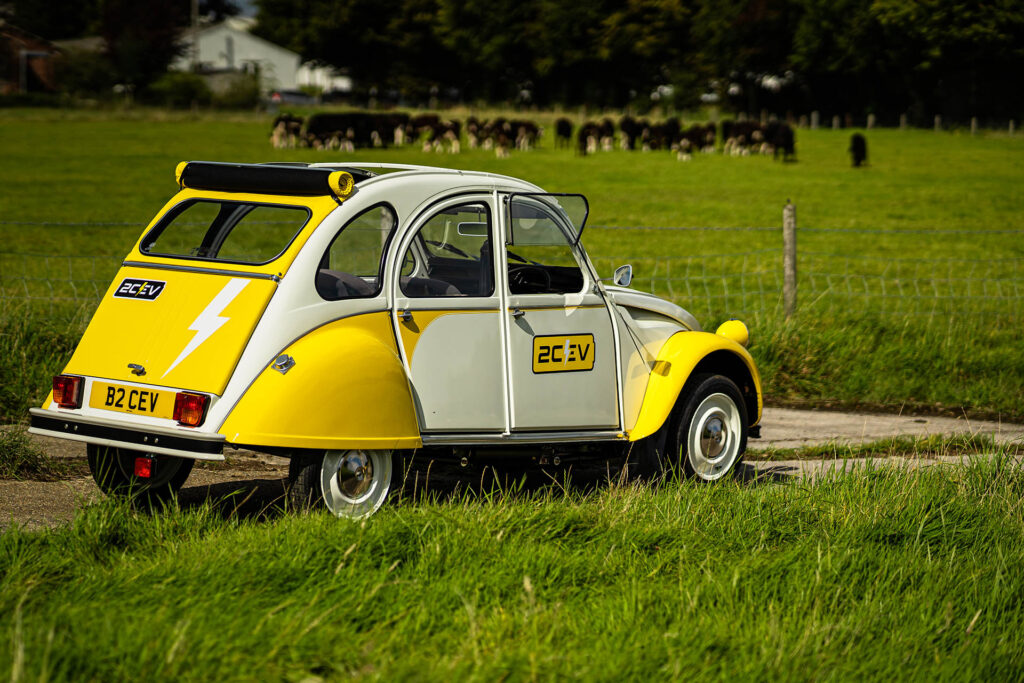
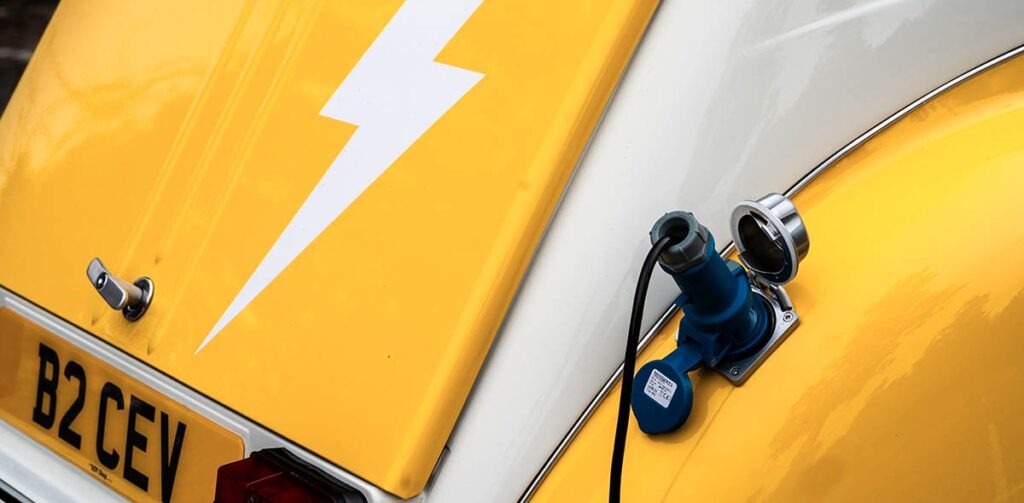
The 2CV Shop have also developed a electric 2CV Truckette called Eive that not only is electric but has a molded rear cargo box that will not rust.
Both of the 2CV Shop offerings have a practical battery system. They claim:
“90% of the initial charge is still available after 6 months without recharging! Modern EVs will lose some power over night if not plugged in, the 2cEv will not. The 2cEv incorporates Lithium Iron Phosphate (LiFePo) batteries in order to optimize the charge speed, efficiency & reliability. Thanks to this standardized technology, perfectly created by many manufacturers around the world, the 2cEv batteries are guaranteed to be at least 80% of their original capacity after 2,500 charge cycles. This means if you fully charge your 2cEv twice a week every week, it will take 24 years to reach the 2500 charge cycles or approximately 175000 miles.”
The advantages of going electric can seem compelling:
• No more paying for gas
• No checking engine oil level… No more engine oil at all!
• No oil filter
• No air filter
• No alternator belt
• No alternator
• No starter motor
• No points or electronic ignition
• No need to adjust the valves
• No fan
• No fuel pump
• No voltage regulator
• No choke cable
• No coil
• No spark plugs
• No carburetor
• No exhaust
• No fuel tank or fuel sender
• No fuel filter
• No fuel pipes
• No trying to get through emissions testsAside from the above and the “I’m green and saving the planet” aspect of having an EV, many 2CV owners have yet to be convinced of the merits of electrification. For one thing, the personality of the car is changed as you are no longer interacting with the mechanicals (driving to the “limited” power available and shifting) which is one aspect of a 2CV that those wanting the original feel of the 2CV cherish. Cost is another. Most people don’t drive their 2CVs daily, so for occasional use, $9K US + shipping for the kit alone is a cost that is tough to justify.
For those looking to acquire a fully restored 2CV, there is a less of a cost delta purchasing an EV 2CV over finding original one in perfect condition, but it is still a considerable expense compared to the cost of buying a good used “driver” 602 cc gas engine 2CV. And for those who want to drive their cars any great distance in a day, ~100 kms on a full charge kind of negates taking any cross-country trips in an EV 2CV.
Offering an extended range up to 250 kms Sander AAlderink 2CV Garage in The Netherlands will transform a 2CV of any year to be all electric and hence referred to as a 2cvE. Sander accomplishes this by making use of the cavity section of a 2CV custom frame for an increased battery capacity. The electric engine used is from a Nissan Leaf.
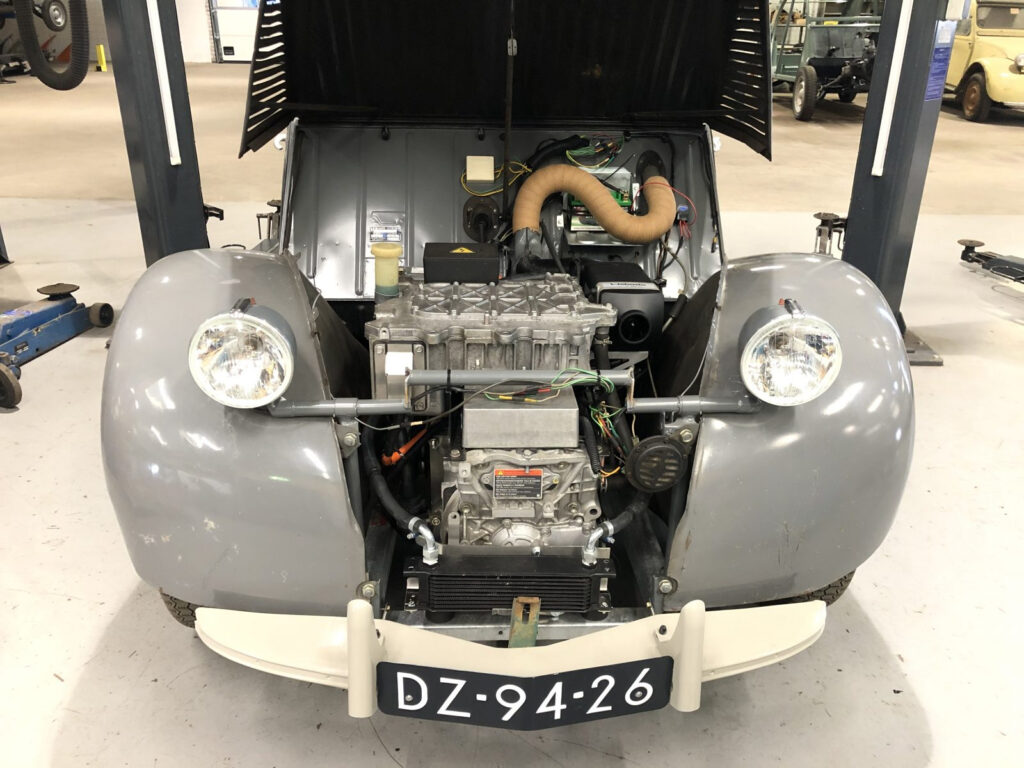
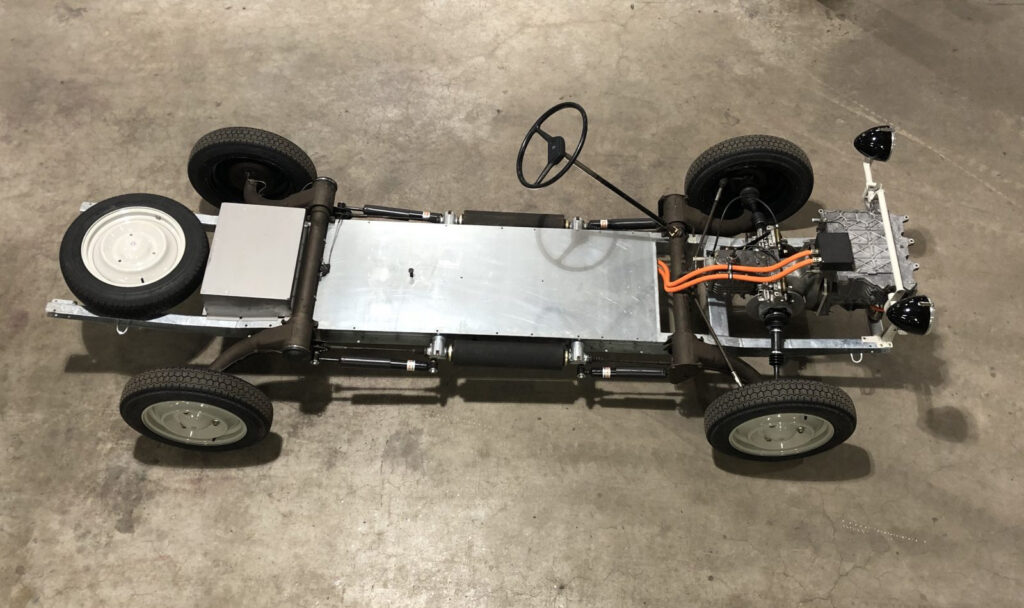
For folks who are continually using 2CVs for cross-town jaunts, like the Paris tour companies or local businesses using a 2CV Truckette as a cute little delivery van, then going electric makes sense, as it does for those of us keeping our 2CVs well into our old age where we may not be able to use the clutch anymore.
And of course, the Méhari is also offered in an electrified version these days by both Méhari Club Cassis and the 2CV Shop in a model they call eDen.

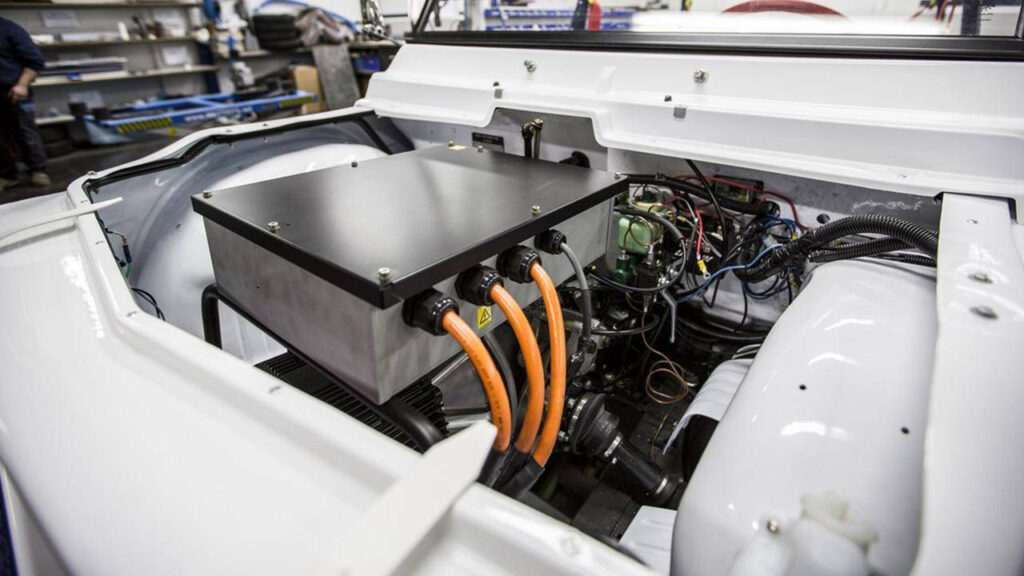
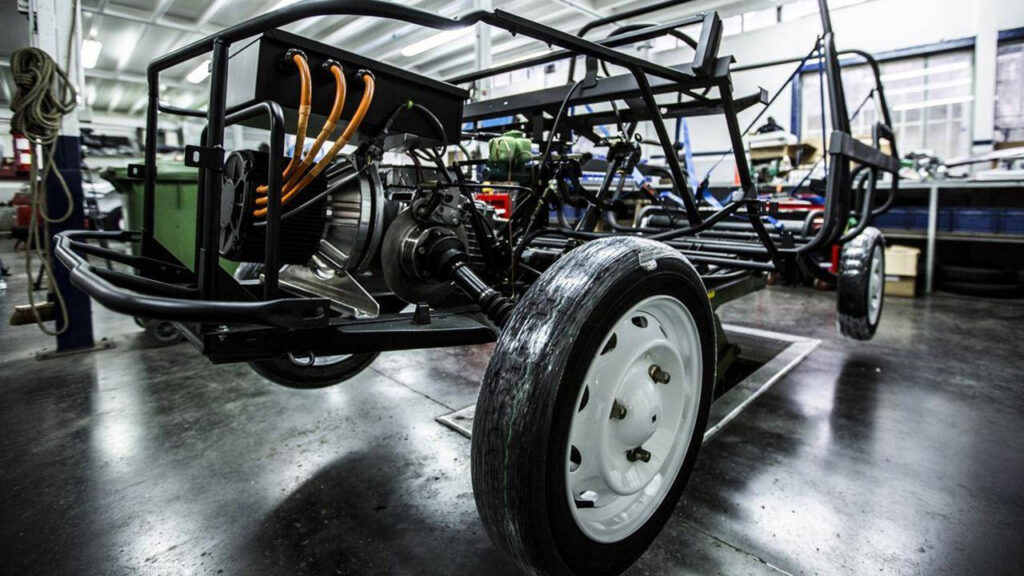
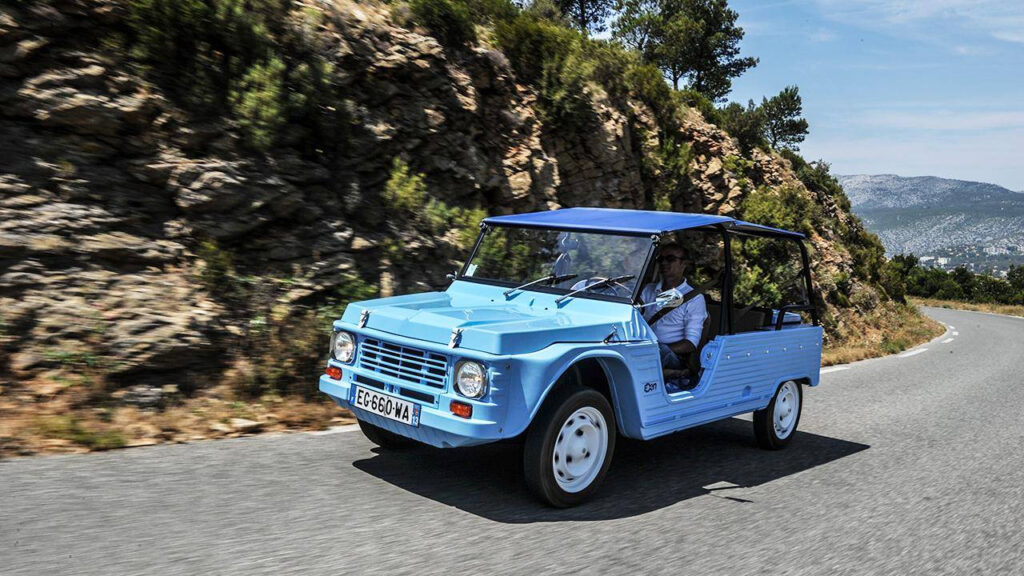
Arguably the eDen is most practical as an EV form Méhari because Meharis are typically used for shorter trips (they are not that comfortable) and the advantage of the body not going up in flames from the possibility of fuel igniting with the internal combustion engine, can be of great comfort to anyone familiar with that outcome.
Sure, they will sell to those guys, but for collectors who want to appreciate a 2CV in the manner it was originally conceived, we’re not so sure….
* Update — April 1, 2023: Méhari Club Cassis R-FIT kits exported to the Canada and the USA will need to be installed by certified installation specialists. So far those shops include:
- Fitzback Garage – St-Hyacinthe, QC Canada
- MARRS Automotive – Santa Clarita, CA, USA
